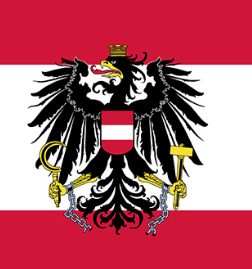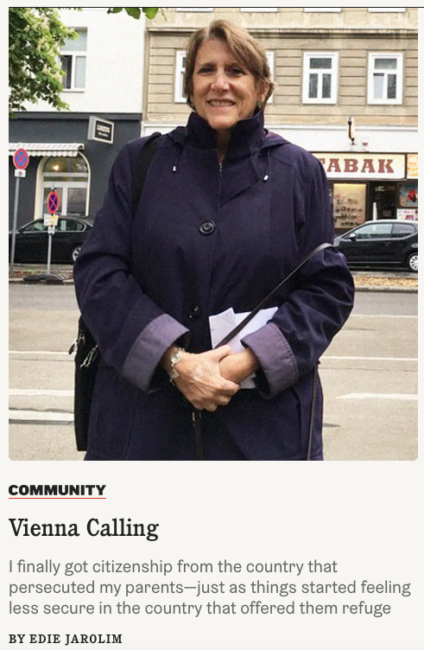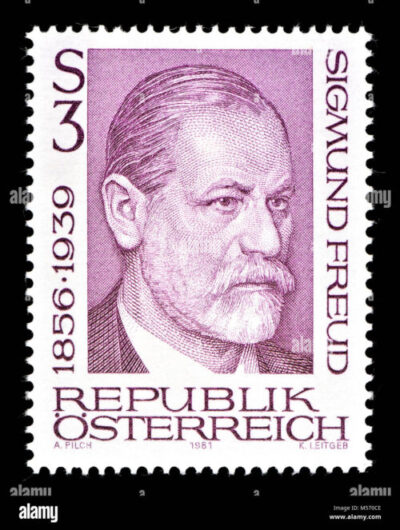
It was a long and circuitous route studded with emotional landmines, but today I can announce my arrival at the destination: My application for Austrian citizenship was approved.
I was apprised of this fact via a phone call from the Austrian consulate in Los Angeles that I almost didn’t answer. It was a late afternoon in January and I was watching Amy Schneider rout her latest opponents on Jeopardy. My caller ID revealed only a Los Angeles number, no name or other identifier. But I have friends in LA who might have been phoning from an unfamiliar number and Amy had an insurmountable lead in Final Jeopardy.
I took the call.
I discussed my initial reaction to the news—spoiler alert: I was surprisingly moved—in my latest contribution to Tablet magazine.

Getting Tongue Tied
Publications like Tablet are great for big picture stories that reach a wider audience. Blogs are better for odd nitpicky musings.
Following the receipt of the citizenship news, I wanted to know how to say “I am an Austrian citizen” in German. A quick online search led me to: Ich bin österreichischer Staatsbürger.
That phrase only tells part of the story of course. The fact that I had to use Google to find it and that I can’t read any of the (untranslated) documents that accompanied my citizenship approval reveals what kind of Austrian citizen I am: The kind who cannot speak the local language.
I discussed my linguistic issues in Freud’s Parrot: My Love-Hate Relationship with Austria. The gist: Although both my parents were from Vienna and spoke German at home, I knew it as a “secret” language, deployed when my mother and father didn’t want me or my sister to understand what they were saying. We were not only discouraged from learning German because they wanted to discuss not-safe-for-children topics in our small, privacy-free apartment, but because it was the language of the country that betrayed them, one that they wanted to put behind them in America. They didn’t succeed in that entirely but I had no warm-and-fuzzy feelings about the land that was mostly spoken of with vituperation, if spoken of at all. I was happy to ignore Austria. And its language.
One might have thought that, once I made my decision to apply for Austrian citizenship, I might have also applied myself to trying to learn German, but nah. I remain passionately ambivalent.
Identity Politics
I did research a few more phrases to describe my status in relation to the old/new land of my people:
- I am Austrian: Ich bin Österreicherin
This has been more-or-less true for my entire life. A first-generation American, I was the offspring of two native Austrians who were citizens before they weren’t allowed to be. If asked about my ethnic background, I could have legitimately answered, “Austrian.”
But I almost never said that. The response had to be caveated to convey the fact that I am a particular kind of Austrian.
- I am an Austrian Jew: Ich bin ein österreichischer Jude
I later learned that this phrase is not correct when applied to me, a female Austrian Jew, so:
- Ich bin eine österreichische Jüdin (not Jude).
I also understand now why some people deemed John F. Kennedy’s declaration of “Ich bin ein Berliner” at the Rathaus Schöneberg in 1963 grammatically incorrect: “Ein” in the examples above is only used in the adjectival form: Ich bin eine österreichische Jüdin but not in Ich bin Osterreichin.
However, according to a piece by Thomas Putnam in The Atlantic:
After [the speech] it would be suggested that Kennedy had got the translation wrong—that by using the article ein before the word Berliner, he had mistakenly called himself a jelly doughnut. In fact, Kennedy was correct. To state Ich bin Berliner would have suggested being born in Berlin, whereas adding the word ein implied being a Berliner in spirit. His audience understood that he meant to show his solidarity.
Even if I were to study German assiduously for the rest of my life, I would never master those nuances. In summary: I am Austrian neither in spirit or by birth, but I am nevertheless an österreichischer Staatsbürger.
Someday, I will probably be faced with the the dilemma of going to Austria with my Austrian passport and having someone at customs speak to me in German and being unable to respond in kind. I will cross that airport concourse when I come to it. I first have to go to Los Angeles and file the paperwork to get the passport, which I am doing next week. I do not think I will encounter any difficulties at the consulate, language wise.
National Stamps and Birds of Prey

I did know from an early age that the German name for Austria was Österreich because I collected stamps, but I never thought about how it meant Eastern “realm,” “empire,” or “kingdom,” or considered the negative connotations of the word “reich,” especially when attached to “third.” Now I learned something it never occurred to me to check into before: the fate of the First and Second reichs.
According to the Encyclopedia Britannica:
Third Reich [is the] official Nazi designation for the regime in Germany from January 1933 to May 1945, as the presumed successor of the medieval and early modern Holy Roman Empire of 800 to 1806 (the First Reich) and the German Empire of 1871 to 1918 (the Second Reich).
Those reichs seem to be diminishing in duration, from 1,000 years to 50 to just over 10, which is nice and, I hope, instructive, though I have my doubts.
Speaking of reichs, the imperial eagle that you see in the detail of the Austrian flag at the top of this post is a version of a coat of arms that goes back to at least the 13th century; it was used through the rise and fall of various Austro-centered empires, though the broken chain on the eagle’s legs dates only to 1945, and is meant to signify the country’s freedom from Nazi Germany (a reign it heartily embraced, but hey…).

The eagle on the Great Seal of the United States is slightly less scary because it’s lighter in color and its feathers are not as spiky, but it’s not particularly pacific looking either. Why do countries adopt birds of prey as national symbols? Are its enemies considered carrion?
And why do I mention this? I got tired of language searches so, instead of trying to find out how to say “I am an Austrian-American dual citizen” in German, I decided to go for the visual representation, dual bird-of-prey iconography.
Make of that what you will.

Thank you for this, I always enjoy reading your writing and want to say: I like this more personal tone than what gets published (though, Congratulations whenever getting published!), and somehow I suspect it will stick with me longer in my memory than the articles that I did read before that are linked above and don’t really recall much of.
I recently came across original notes from 1983 from my taxi story that were never included in the published version in the Tribune Sunday Magazine that next year — which was a huge triumph for me on so many levels, but i discovered now that what I first wrote about what I saw driving is so much richer (but must have been a little too colorful for the editor).
Thank you for these kind words. I will say that, in this case, I’m proud of the Tablet piece about dual citizenship that I linked to here. It’s personal and meaningful and just less weird (which I don’t mean in a bad way) than what I post here. And the editor barely touched it.
I’ll reread it!
🙂 Hope you enjoy!
I’m happy for you, Edie. As you may remember, I encouraged you in taking this step as a form of reparation, which I believe is an important part of restoring balance when people have been wronged, whether by systems or individuals, whether they directly or the ancestors they represent. I appreciated reading in the Tablet about the clarity you gained about taking this step and about how it moved you. It did not at all sound like vengeance to me, but the righting of massive wrongs. I even have a little hand-clap for Austria for taking this step.
Thanks, Anna. Yes, you were among the boosters of this move! Now I just have to quiet all the folks insisting that I learn German…
Haha! Good luck! I have to say I did find it useful when I visited Vienna but not necessary.
Thanks! I have visited Vienna several times in the last few years, but always as an American with many English speaking contacts to ease the way. With an Austrian passport there will be expectations…
Willkommen in Österreich, Edie!
Danke!